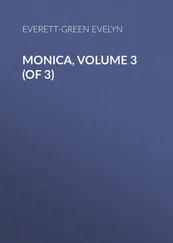Friedrich Max Müller - Chips from a German Workshop, Volume 1
Здесь есть возможность читать онлайн «Friedrich Max Müller - Chips from a German Workshop, Volume 1» — ознакомительный отрывок электронной книги совершенно бесплатно, а после прочтения отрывка купить полную версию. В некоторых случаях можно слушать аудио, скачать через торрент в формате fb2 и присутствует краткое содержание. Жанр: foreign_prose, foreign_antique, на английском языке. Описание произведения, (предисловие) а так же отзывы посетителей доступны на портале библиотеки ЛибКат.
- Название:Chips from a German Workshop, Volume 1
- Автор:
- Жанр:
- Год:неизвестен
- ISBN:нет данных
- Рейтинг книги:3 / 5. Голосов: 1
-
Избранное:Добавить в избранное
- Отзывы:
-
Ваша оценка:
- 60
- 1
- 2
- 3
- 4
- 5
Chips from a German Workshop, Volume 1: краткое содержание, описание и аннотация
Предлагаем к чтению аннотацию, описание, краткое содержание или предисловие (зависит от того, что написал сам автор книги «Chips from a German Workshop, Volume 1»). Если вы не нашли необходимую информацию о книге — напишите в комментариях, мы постараемся отыскать её.
Chips from a German Workshop, Volume 1 — читать онлайн ознакомительный отрывок
Ниже представлен текст книги, разбитый по страницам. Система сохранения места последней прочитанной страницы, позволяет с удобством читать онлайн бесплатно книгу «Chips from a German Workshop, Volume 1», без необходимости каждый раз заново искать на чём Вы остановились. Поставьте закладку, и сможете в любой момент перейти на страницу, на которой закончили чтение.
Интервал:
Закладка:
Three of these results, to which, I believe, a comparative study of religions is sure to lead, I may state before I conclude this Lecture:
1. We shall learn that religions in their most ancient form, or in the minds of their authors, are generally free from many of the blemishes that attach to them in later times.
2. We shall learn that there is hardly one religion which does not contain some truth, some important truth; truth sufficient to enable those who seek the Lord and feel after Him, to find Him in their hour of need.
3. We shall learn to appreciate better than ever what we have in our own religion. No one who has not examined patiently and honestly the other religions of the world, can know what Christianity really is, or can join with such truth and sincerity in the words of St. Paul: 'I am not ashamed of the Gospel of Christ.'
II.
CHRIST AND OTHER MASTERS. 32
In so comprehensive a work as Mr. Hardwick's 'Christ and other Masters,' the number of facts stated, of topics discussed, of questions raised, is so considerable that in reviewing it we can select only one or two points for special consideration. Mr. Hardwick intends to give in his work, of which the third volume has just been published, a complete panorama of ancient religion. After having discussed in the first volume what he calls the religious tendencies of our age, he enters upon an examination of the difficult problem of the unity of the human race, and proceeds to draw, in a separate chapter, the characteristic features of religion under the Old Testament. Having thus cleared his way, and established some of the principles according to which the religions of the world should be judged, Mr. Hardwick devotes the whole of the second volume to the religions of India. We find there, first of all, a short but very clear account of the religion of the Veda, as far as it is known at present. We then come to a more matter-of-fact representation of Brahmanism, or the religion of the Hindus, as represented in the so-called Laws of Manu, and in the ancient portions of the two epic poems, the Râmâya n a and Mahâbhârata. The next chapter is devoted to the various systems of Indian philosophy, which all partake more or less of a religious character, and form a natural transition to the first subjective system of faith in India, the religion of Buddha. Mr. Hardwick afterwards discusses, in two separate chapters, the apparent and the real correspondences between Hinduism and revealed religion, and throws out some hints how we may best account for the partial glimpses of truth which exist in the Vedas, the canonical books of Buddhism, and the later Purâ n as. All these questions are handled with such ability, and discussed with so much elegance and eloquence, that the reader becomes hardly aware of the great difficulties of the subject, and carries away, if not quite a complete and correct, at least a very lucid, picture of the religious life of ancient India. The third volume, which was published in the beginning of this year, is again extremely interesting, and full of the most varied descriptions. The religions of China are given first, beginning with an account of the national traditions, as collected and fixed by Confucius. Then follows the religious system of Lao-tse, or the Tao-ism of China, and lastly Buddhism again, only under that modified form which it assumed when introduced from India into China. After this sketch of the religious life of China, the most ancient centre of Eastern civilisation, Mr. Hardwick suddenly transports us to the New World, and introduces us to the worship of the wild tribes of America, and to the ruins of the ancient temples in which the civilised races of that continent, especially the Mexicans, once bowed themselves down before their god or gods. Lastly, we have to embark on the South Sea, and to visit the various islands which form a chain between the west coast of America and the east coast of Africa, stretching over half of the globe, and inhabited by the descendants of the once united race of the Malayo-Polynesians.
The account which Mr. Hardwick can afford to give of the various systems of religion in so short a compass as he has fixed for himself, must necessarily be very general; and his remarks on the merits and defects peculiar to each, which were more ample in the second volume, have dwindled down to much smaller dimensions in the third. He declares distinctly that he does not write for missionaries. 'It is not my leading object,' he says, 'to conciliate the more thoughtful minds of heathendom in favour of the Christian faith. However laudable that task may be, however fitly it may occupy the highest and the keenest intellect of persons who desire to further the advance of truth and holiness among our heathen fellow-subjects, there are difficulties nearer home which may in fairness be regarded as possessing prior claims on the attention of a Christian Advocate.'
We confess that we regret that Mr. Hardwick should have taken this line. If, in writing his criticism on the ancient or modern systems of Pagan religion, he had placed himself face to face with a poor helpless creature, such as the missionaries have to deal with—a man brought up in the faith of his fathers, accustomed to call his god or gods by names sacred to him from his first childhood—a man who had derived much real help and consolation from his belief in these gods—who had abstained from committing crime, because he was afraid of the anger of a Divine Being—who had performed severe penance, because he hoped to appease the anger of the gods—who had given, not only the tenth part of all he valued most, but the half, nay, the whole of his property, as a free offering to his priests, that they might pray for him or absolve him from his sin—if, in discussing any of the ancient or modern systems of Pagan religion, Mr. Hardwick had tried to address his arguments to such a person, we believe he would himself have felt a more human, real, and hearty interest in his subject. He would more earnestly have endeavoured to find out the good elements in every form of religious belief. No sensible missionary could bring himself to tell a man who has done all that he could do, and more than many who have received the true light of the Gospel, that he was excluded from all hope of salvation, and by his very birth and colour handed over irretrievably to eternal damnation. It is possible to put a charitable interpretation on many doctrines of ancient heathenism, and the practical missionary is constantly obliged to do so. Let us only consider what these doctrines are. They are not theories devised by men who wish to keep out the truth of Christianity, but sacred traditions which millions of human beings are born and brought up to believe in, as we are born and brought up to believe in Christianity. It is the only spiritual food which God in his wisdom has placed within their reach. But if we once begin to think of modern heathenism, and how certain tenets of Lao-tse resemble the doctrines of Comte or Spinoza, our equanimity, our historical justice, our Christian charity, are gone. We become advocates wrangling for victory—we are no longer tranquil observers, compassionate friends and teachers. Mr. Hardwick sometimes addresses himself to men like Lao-tse or Buddha, who are now dead and gone more than two thousand years, in a tone of offended orthodoxy, which may or may not be right in modern controversy, but which entirely disregards the fact that it has pleased God to let these men and millions of human beings be born on earth without a chance of ever hearing of the existence of the Gospel. We cannot penetrate into the secrets of the Divine wisdom, but we are bound to believe that God has His purpose in all things, and that He will know how to judge those to whom so little has been given. Christianity does not require of us that we should criticise, with our own small wisdom, that Divine policy which has governed the whole world from the very beginning. We pity a man who is born blind—we are not angry with him; and Mr. Hardwick, in his arguments against the tenets of Buddha or Lao-tse, seems to us to treat these men too much in the spirit of a policeman who tells a poor blind beggar that he is only shamming blindness. However, if, as a Christian Advocate, Mr. Hardwick found it impossible to entertain, or at least express, any sympathy with the Pagan world, even the cold judgment of the historian would have been better than the excited pleading of a partisan. Surely it is not necessary, in order to prove that our religion is the only true religion, that we should insist on the utter falseness of all other forms of belief. We need not be frightened if we discover traces of truth, traces even of Christian truth, among the sages and lawgivers of other nations. St. Augustine was not frightened by this discovery, and every thoughtful Christian will feel cheered by the words of that pious philosopher, when he boldly declares, that there is no religion which, among its many errors, does not contain some real and divine truth. It shows a want of faith in God, and in His inscrutable wisdom in the government of the world, if we think we ought to condemn all ancient forms of faith, except the religion of the Jews. A true spirit of Christianity will rather lead us to shut our eyes against many things which are revolting to us in the religion of the Chinese, or the wild Americans, or the civilised Hindus, and to try to discover, as well as we can, how even in these degraded forms of worship a spark of light lies hidden somewhere—a spark which may lighten and warm the heart of the Gentiles, 'who by patient continuance in well-doing, seek for glory, and honour, and immortality.' There is an undercurrent of thought in Mr. Hardwick's book which breaks out again and again, and which has certainly prevented him from discovering many a deep lesson which may be learnt in the study of ancient religions. He uses harsh language, because he is thinking, not of the helpless Chinese, or the dreaming Hindu whose tenets he controverts, but of modern philosophers; and he is evidently glad of every opportunity where he can show to the latter that their systems are mere rechauffés of ancient heathenism. Thus he says, in his introduction to the third volume:
Читать дальшеИнтервал:
Закладка:
Похожие книги на «Chips from a German Workshop, Volume 1»
Представляем Вашему вниманию похожие книги на «Chips from a German Workshop, Volume 1» списком для выбора. Мы отобрали схожую по названию и смыслу литературу в надежде предоставить читателям больше вариантов отыскать новые, интересные, ещё непрочитанные произведения.
Обсуждение, отзывы о книге «Chips from a German Workshop, Volume 1» и просто собственные мнения читателей. Оставьте ваши комментарии, напишите, что Вы думаете о произведении, его смысле или главных героях. Укажите что конкретно понравилось, а что нет, и почему Вы так считаете.












